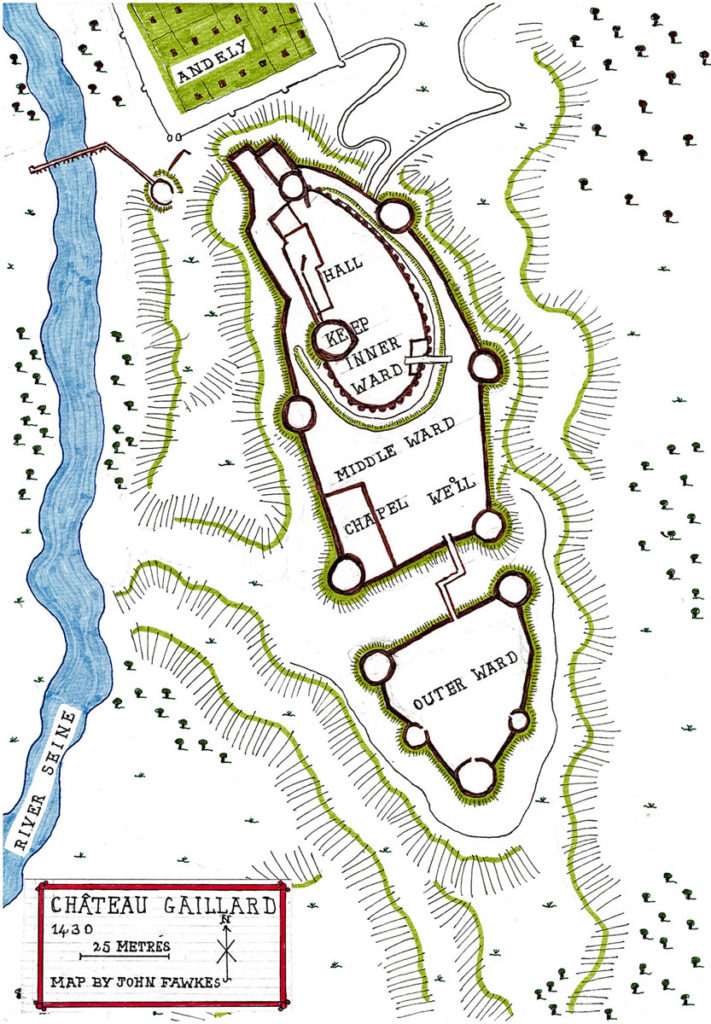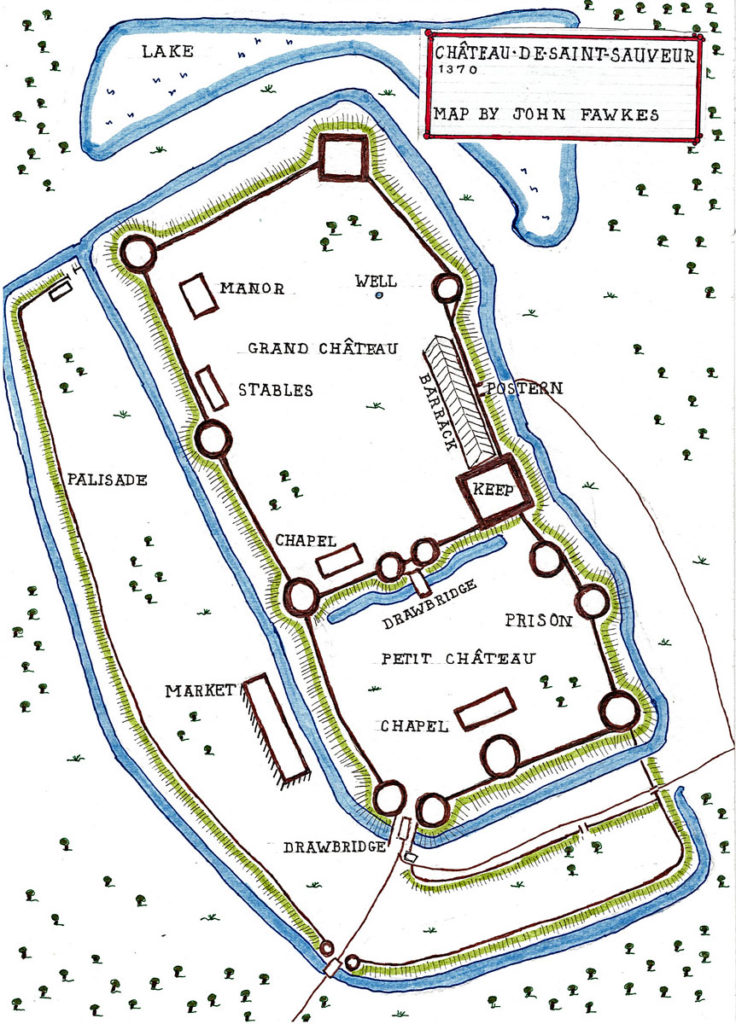The following battles of the 100 Years War are described and illustrated under this title:

King Henry V at the Battle of Agincourt on 25th October 1415 in the Hundred Years War: picture by Harry Payne
Battle of Sluys: The naval engagement on 24th June 1340 that marked the beginning of the Hundred Years War and established England in its succession of victories under Edward III.
Battle of Morlaix: The first land battle between the English and the French of the Hundred Years War fought in Brittany on 30th September 1342.
Battle of Auberoche: The battle in Périgord in France fought on 21st October 1345 during the Hundred Years War where a small English/Gascon army defeated a French army six times its size.
Battle of Caen: The English capture of the French town of Caen on 26th July 1346 in the Hundred Years War at the beginning of King Edward III’s invasion of France.
Battle of Creçy: King Edward III’s crushing English victory over the French on 26th August 1346 in the Hundred Years War; the Black Prince winning his spurs and acquiring the emblem of the Three White Feathers.
Siege of Calais: The English siege of Calais between 4th September 1346 and 3rd August 1347 in the Hundred Years War and its capture leading to an English occupation of the town for 200 years.
Battle of Neville’s Cross: The crushing defeat on 17th October 1346 of David II, son of Robert the Bruce and King of Scotland, whose capture and the loss of several of Scotland’s military leaders left Scotland helpless for many years.
Battle of La Roche-Derrien: The savage fight between the English force of Sir Thomas Dagworth and the Breton/French army of Charles of Blois outside the besieged Breton town of La Roche-Derrien on 20th June 1347 in the Hundred Years War
Battle of Winchelsea: King Edward III’s naval victory over a Castilian fleet commanded by Charles of Spain off the coast of Southern England on 29th August 1350 during the Hundred Years War.
Battle of Mauron: The battle on 14th August 1352 in the Hundred Years War at which 89 members of the French King John II’s new order of chivalry the ‘Order of the Star’ were killed by the Anglo-Bretons.
Battle of Poitiers: The Black Prince’s great victory on 19th September 1356 in the Hundred Years War over the French King John.
Battle of Cocherel: The battle in Normandy on 16th May 1364 during the Hundred Years War between armies led by the Captal de Buch and Bertrand du Guescelin.
Battle of Auray: The battle on 29th September 1364 in the Hundred Years War that ended the Breton Civil War in favour of the English supported candidate John de Montfort.
Battle of Najera: The Black Prince’s victory over Henry of Trastamara, King of Castile, on 3rd April 1367, described as his most successful battle militarily and disastrous politically.
Battle of La Rochelle: The naval battle on 22nd June 1372 in the Hundred Years War between the English and the Castilians which saw the complete destruction of the English fleet and of England’s plans for the defence of Gascony against the French.
Battle of Otterburn: The Scots general, the Earl of Douglas’s defeat of his long standing English rival, Sir Henry ‘Hotspur’ Percy, Earl of Northumberland, on the England/Scotland Border on 5th August 1388.
Battle of Homildon Hill: The border battle on 7th May 1402 in which the Scots lost a generation of chiefs to the English archers.
Battle of Shrewsbury: The savage battle on 21st July 1403 that abruptly ended Harry Hotspur’s attempt to wrest the throne of England from King Henry IV.
Siege of Harfleur: The English capture of the port of Harfleur in the Hundred Years War that gave King Henry V the base he needed for his invasion of France in August 1415.
Battle of Agincourt: The English victory over the French king’s army on 25th October 1415 in the Hundred Years War immortalised in Williams Shakespeare’s play “Henry V”.
Battle of Baugé: The defeat of the Duke of Clarence and his English army by the Scots and French army of the Dauphin of France on 22nd March 1421 in the Hundred Years War.
Battle of Cravant: The defeat of a French and Scots army on 31st July 1423 by the Earl of Salisbury near Auxerre in the Hundred Years War.
Battle of Verneuil: The devastating defeat by the Duke of Bedford’s English army of the French army of the Dauphin and his Scots allies and mercenaries from Lombardy and Castile on 17th August 1424 in the Hundred Years War; a battle described by the French as a ‘Second Agincourt’.
Siege of Orléans: The unsuccessful English siege of Orléans between October 1428 and May 1429 that saw the dramatic emergence of Joan of Arc and the beginning of the end of the English invasion of France and the Hundred Years War.
Battle of the Herrings: The successful defence of a supply column bringing Lenten fare to the army of the Earl of Salisbury besieging Orleans on 11th February 1429 in the Hundred Years War.
Battle of Patay: The French victory over the English on 18th June 1429 in the Hundred Years War inspired by Joan of Arc.
Battle of Formigny: The French victory over the English on 15th April 1450 in the Hundred Years War that destroyed the last English army in Normandy.
Battle of Castillon: The death of the English commander John Talbot, Earl of Shrewsbury and the defeat of his Anglo-Gascon army by the French artillery general Jean Bureau on 17th July 1453 in the battle that ended English dominion over Gascony and brought the Hundred Years War between England and France to a close.

